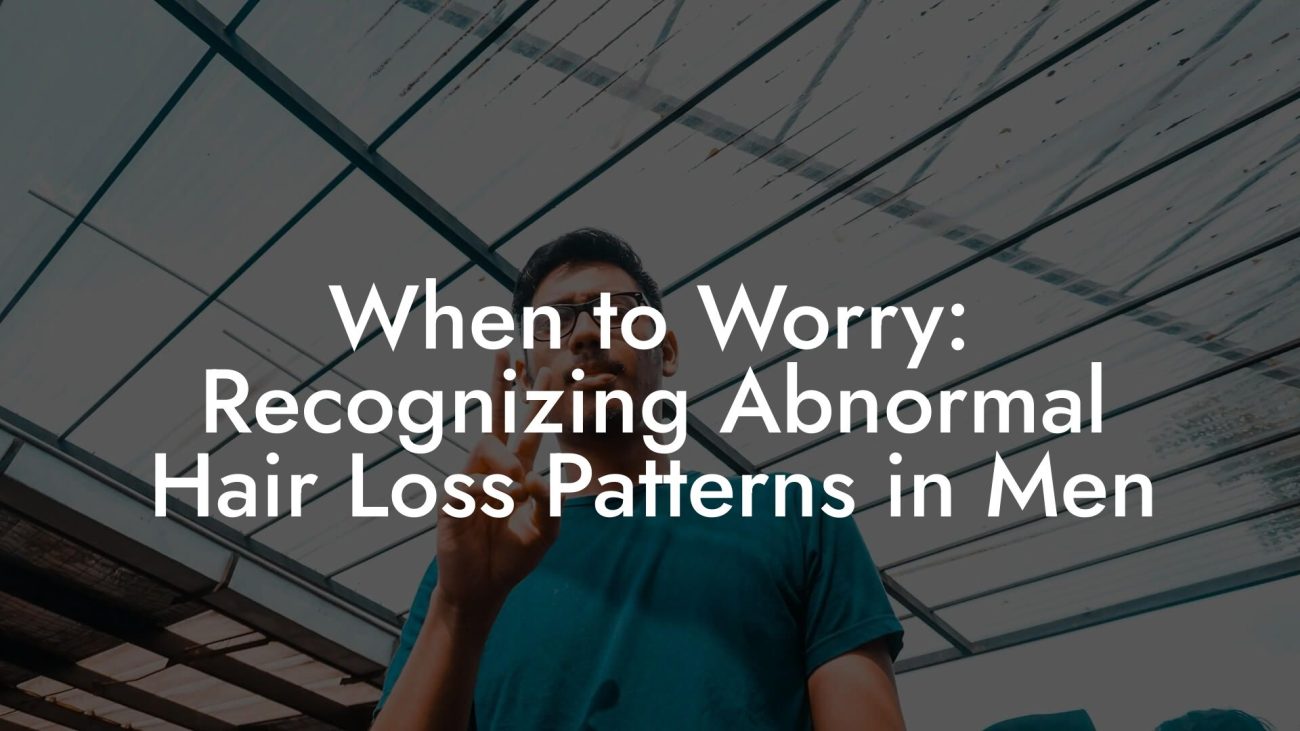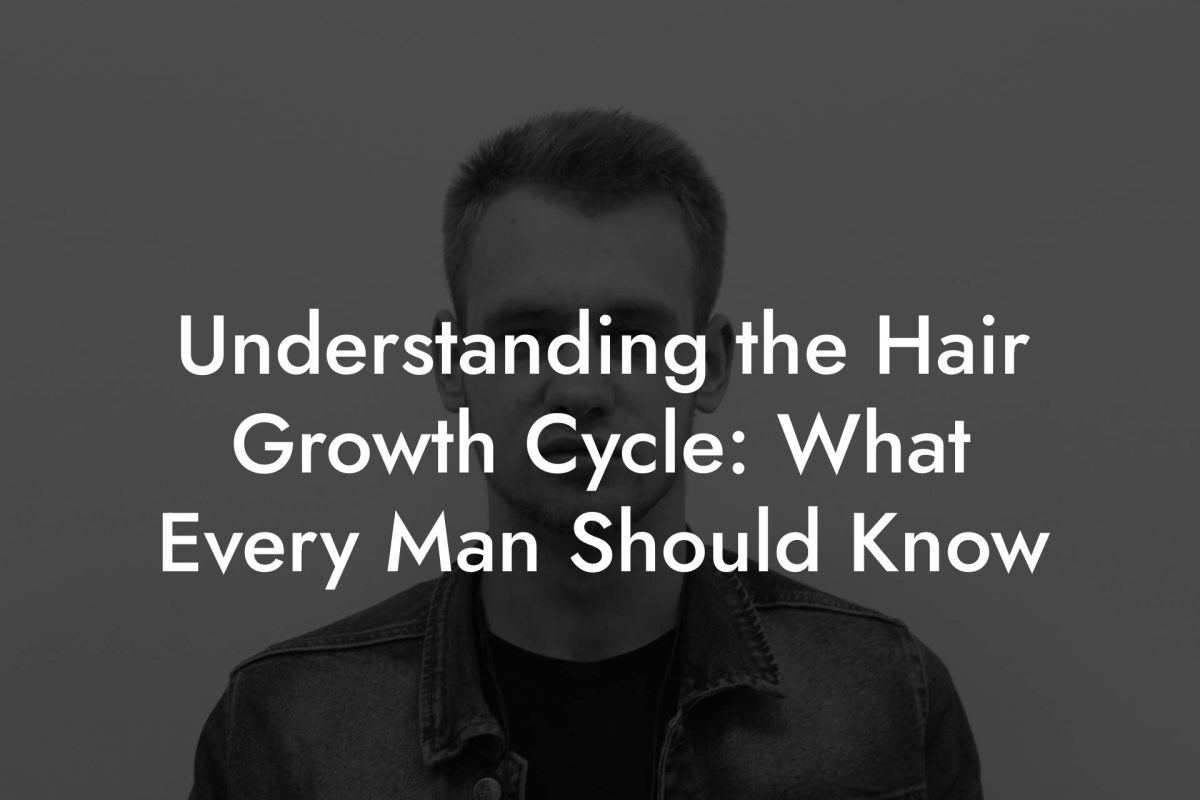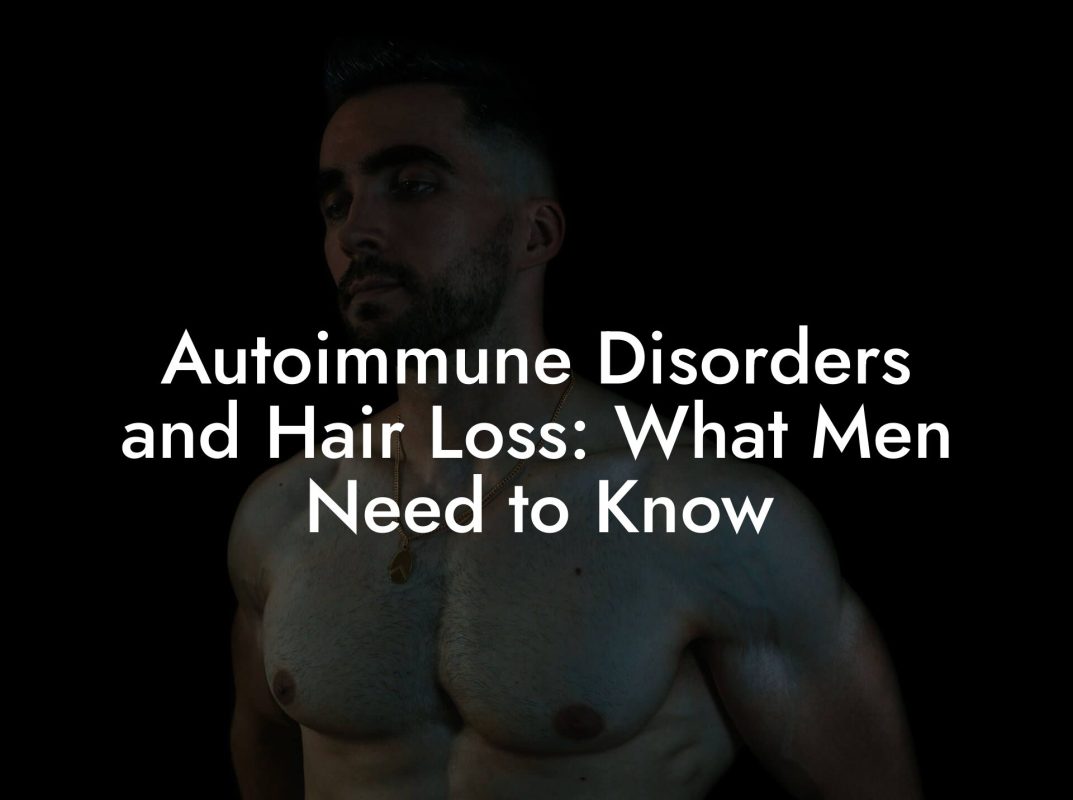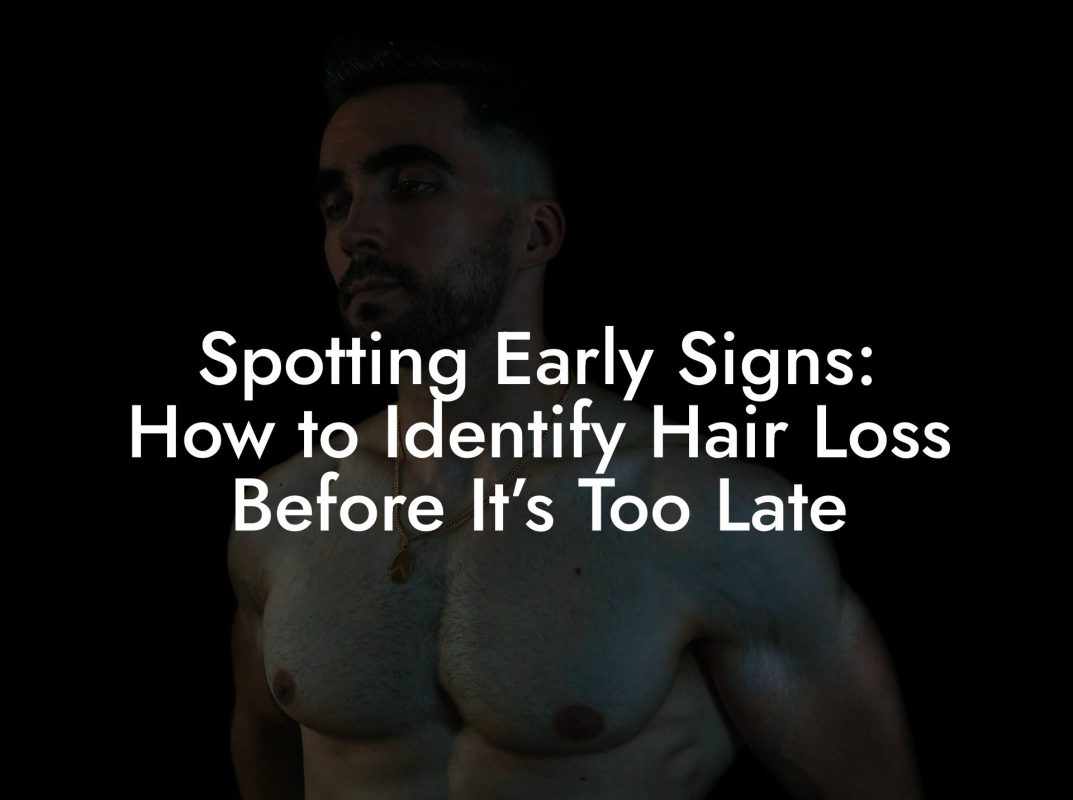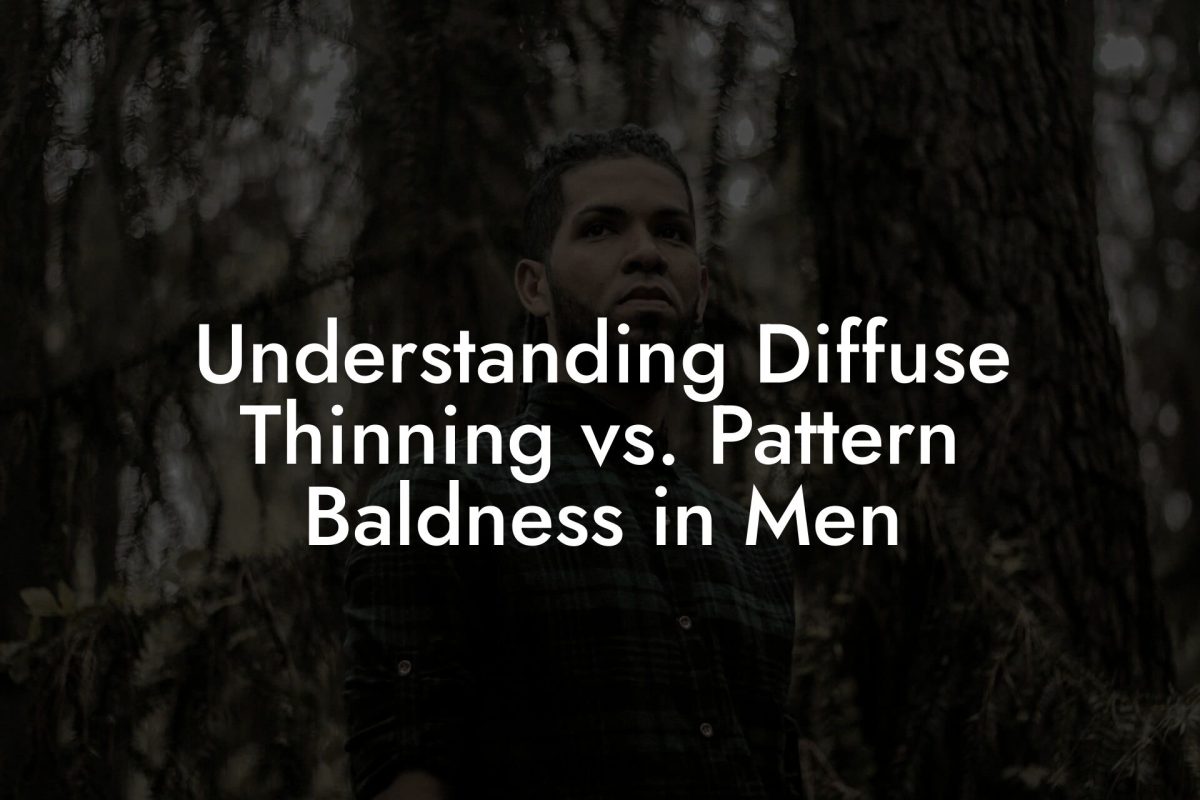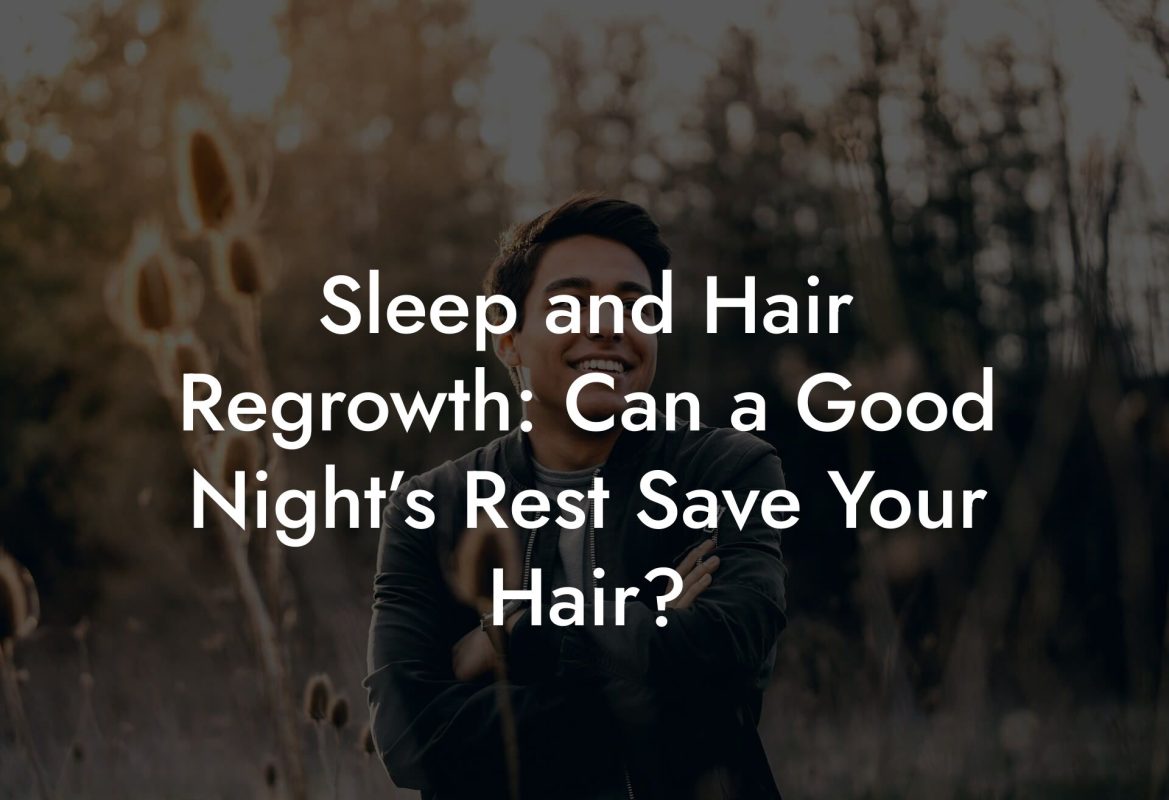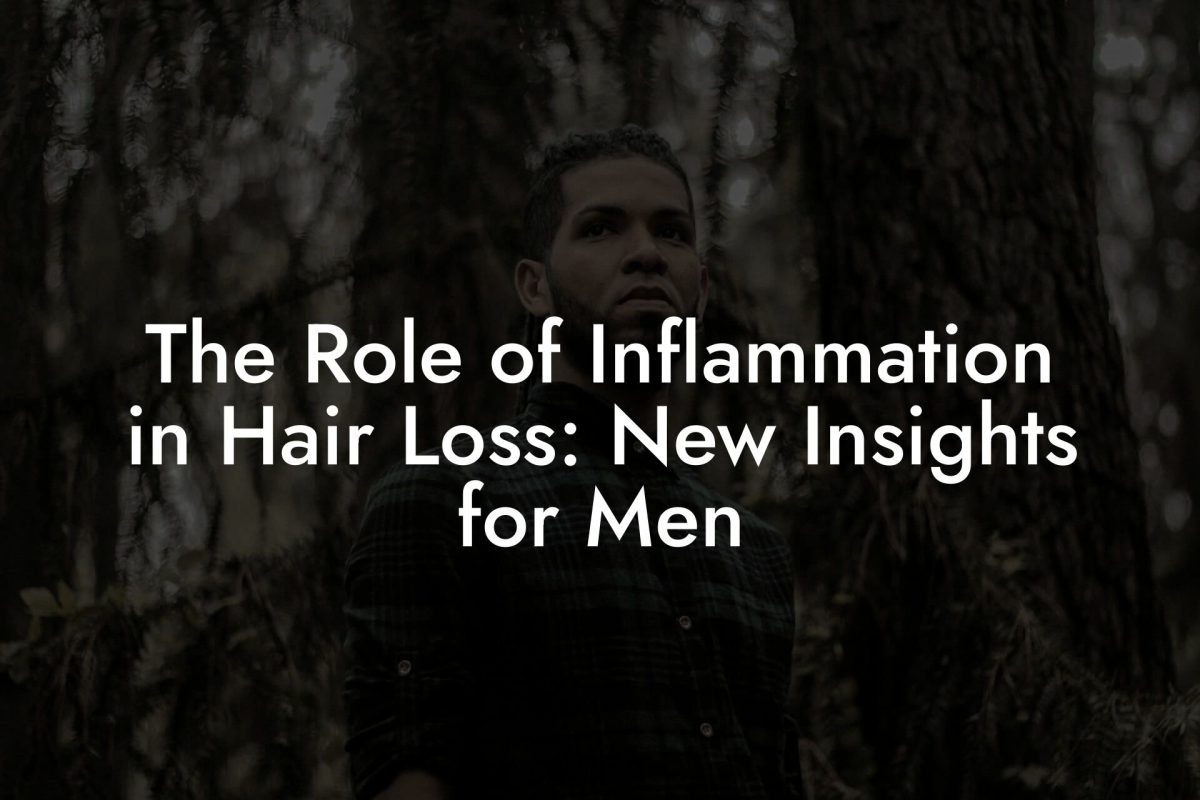Hair Loss Library
The Impact of Medications on Men’s Hair: What You Should Ask Your Doctor
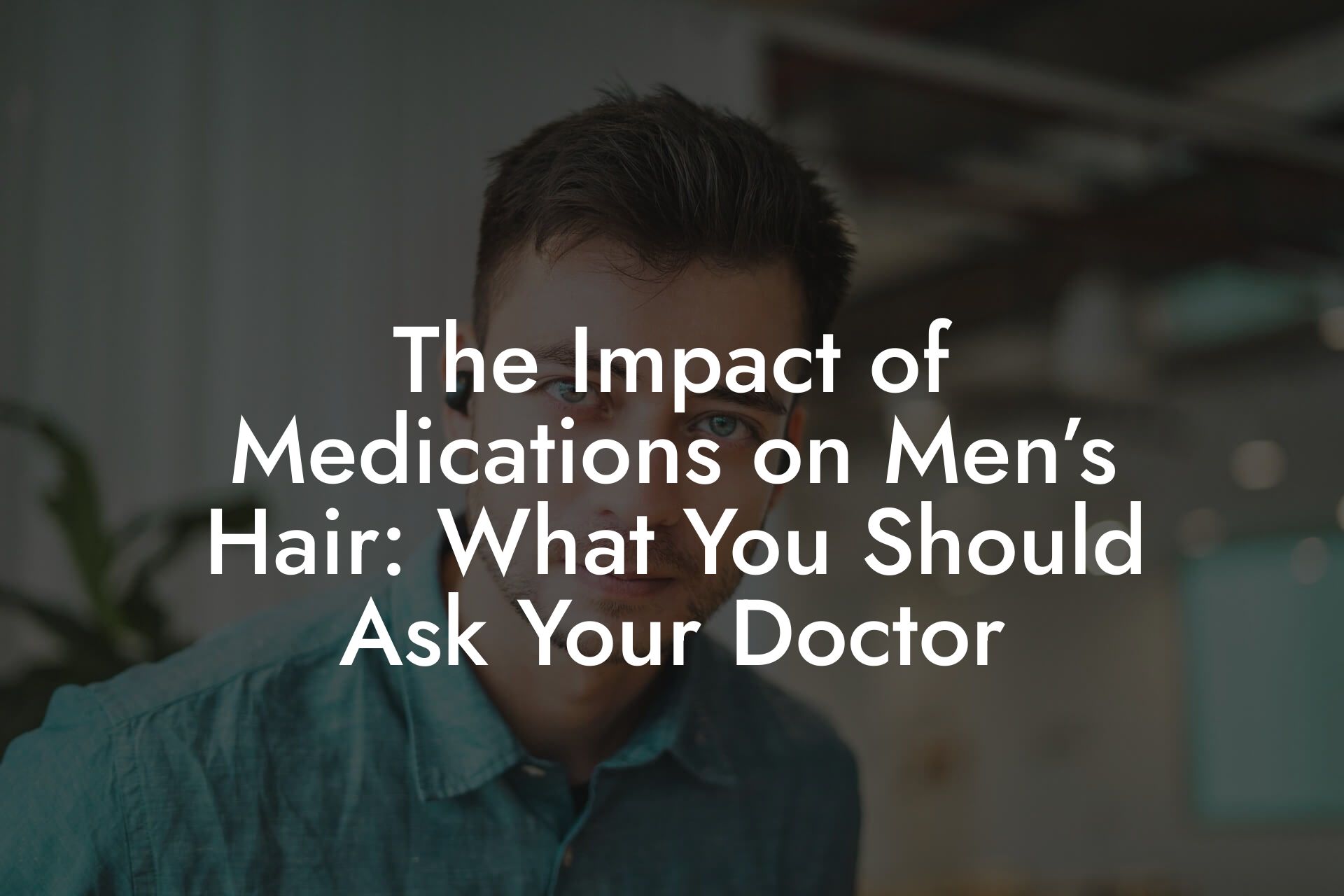
Ever noticed your hair doing a disappearing act after you started that new medication? You’re not alone—a growing number of men are noticing changes to their hairline and wondering if their prescriptions are staging a coup against their locks. Welcome to our deep dive into the impact of medications on men’s hair, tailored for the modern dude who’s all about taking control of his image without breaking the bank—or his self-esteem. Get ready for an engaging, humorous ride as we explore what you should be asking your doctor, debunk myths, and arm you with the knowledge to make informed choices.
The Hidden Connection: Medications and Your Mane
Picture this: you’re cruising through your day, popping your pills like clockwork, and then, out of the blue, you notice a few extra strands in your hairbrush. It might seem like a bad hair day that just won’t quit, but chances are your medication might be one of the surprise culprits. While most of us take medications to improve our overall health, some side effects can be downright uninvited—hair loss being a notorious one.
It turns out that our follicles are more sensitive than that friend who cries at every rom-com. Medications can disturb the delicate balance of hormones, nutrients, and cellular activity in your scalp, leading to thinning hair and even complete hair loss in extreme cases. The good news is that by knowing what to ask your doctor and understanding the interplay between drugs and hair health, you can reclaim your mane—and your confidence.
In this guide, we’ll dig into a range of medications that might be impacting your hair, the science behind why it happens, and – most importantly – the questions you need to be firing off during your next doctor's visit. So grab your favorite beverage (coffee, tea, or a cheeky mocktail) and let’s unravel the mystery behind those vanishing locks.
The Science of Shedding: How Medications Affect Hair Health
Before you panic and put your medication on trial, let’s talk science. Hair growth is a complex process that cycles through different phases—anagen (growth), catagen (transitional), and telogen (resting). When everything’s in balance, your hair keeps on growing. But certain medications can throw a wrench into these stages, speeding up the process of shedding.
Some drugs interfere with the hormones that govern hair growth, while others might affect the blood flow to your scalp or the nutrients available to those tiny follicles. It’s kind of like your hair’s favorite restaurant suddenly serving decaf—your follicles just don’t get the same lovin’.
Here’s a simplified breakdown of the science at work:
- Hormonal Imbalances: Some medications, particularly those that meddle with androgens or estrogen levels, can disrupt the natural hair growth cycle. For example, drugs that suppress testosterone or interfere with its metabolism might inadvertently slow down hair growth or trigger hair thinning.
- Nutrient Absorption Disruption: Certain medications affect how your body absorbs vitamins and minerals. A lack of essential nutrients like iron, zinc, and biotin—crucial for healthy hair—can lead to brittle, thinning locks.
- Circulatory Concerns: Medications that affect blood circulation can reduce the oxygen and nutrient supply to your scalp, causing your hair follicles to go into a kind of survival mode where hair growth is no longer a priority.
- Direct Follicle Toxicity: Some treatments, such as chemotherapy, are designed to target rapidly dividing cells and, unfortunately, they can’t distinguish between cancer cells and hair follicle cells. This leads to the notorious hair loss often associated with cancer treatment.
Understanding these scientific tidbits can empower you to ask targeted questions, so you know exactly how your prescribed medications might be affecting what’s above your shoulders.
Top Medications That May Be Sabotaging Your Strands
Let’s get down to brass tacks. Not every medication is a hair nemesis—but some are more notorious than others. Here are some common culprits you might have heard of (or might be prescribed) that have been linked to hair loss in men:
1. Blood Pressure Medications
Beta blockers and ACE inhibitors are popular for managing high blood pressure, but a number of guys have reported thinning hair as an unwelcome side effect. While not everyone will experience this, if you’re noticing a gradual recession, it might be time to ask your doc if there’s an alternative.
2. Antidepressants
Living in a world that can sometimes feel like a never-ending meme loop of stress and anxiety, many turn to antidepressants. Yet for some, the trade-off for a better mood might be a few extra strands in the drain. SSRIs and other related medications can disrupt the natural hair cycle.
3. Steroids
Steroid treatments are widely used for conditions ranging from asthma to autoimmune disorders. And while they can be life-saving, they might also disrupt hormone levels enough to cause noticeable hair thinning.
4. Acne Medications
Yes, even the dermatologists’ favorites can have a dark side. Some oral acne treatments have been linked to hair loss, leaving you to wonder if your quest for clear skin might be costing you your once majestic mane.
5. Chemotherapy and Cancer Medications
Perhaps the most dramatic example, chemotherapy is notorious for its impact on hair growth. While hair loss during cancer treatment is often temporary, the emotional toll can be significant. Fortunately, new cooling cap technologies and other strategies are offering hope for reducing this side effect.
If any of these sound all too familiar, it’s worth getting on the phone (or making an appointment) with your doctor. Remember: knowledge is power, and knowing your options can make all the difference when it comes to preserving your hair and your self-confidence.
Cracking the Code: What to Ask Your Doctor
Walking into your doctor’s office can feel like stepping into a high-stakes interrogation room—but it doesn’t have to be that way. When you suspect your medication might be playing a prank on your follicles, it’s crucial to have a list of questions ready. Here are some conversation starters to help you navigate the medical maze:
- Is hair loss a common side effect of this medication? – A direct question that gets you the info straight from the expert.
- Are there alternative medications with fewer hair-related side effects? – Sometimes a simple swap can save your crown.
- What lifestyle changes or supplements can I incorporate to counteract hair loss? – Your doctor might suggest nutritional changes or vitamins to bolster your hair’s defenses.
- How long do I need to be on this medication, and is there potential for a rebound effect once I stop? – Timing is everything, and knowing the duration helps you plan accordingly.
- Can dosage adjustments mitigate the side effects without compromising the medication’s benefits? – A nuanced question that shows you’re informed and proactive.
Armed with these questions, you’re more than ready to engage in a candid dialogue with your doctor. It’s all about weighing the benefits of your medication against the risk of a thinning hairline, and sometimes a small dosage adjustment or alternative therapy can make a big difference.
Navigating the Medical Maze: Insider Tips for a Confident Conversation
Let’s face it—medical appointments can be intimidating. Here are a few insider tips to help you steer the conversation like a pro:
- Do Your Homework: Before your appointment, jot down any changes you’ve noticed and gather info on your medication’s side effects. Knowledge is your best wingman.
- Bring a Friend: Having someone else there can help you remember details and ask follow-up questions without feeling overwhelmed.
- Be Honest and Direct: Your doctor isn’t there to judge your concerns—they’re there to help. Explain your worries about hair loss openly.
- Ask for Clarification: If you’re not sure about a term or a recommendation, don’t hesitate to ask for more details. Better safe than sorry!
- Consider a Second Opinion: If you’re still uncertain, seek a second expert opinion. Your hair (and peace of mind) is worth it.
Remember, this isn’t a one-sided interrogation—it’s a partnership between you and your healthcare provider. By actively engaging in the conversation, you pave the way for more personalized care that considers your hair health as an integral part of your overall well-being.
Alternative Approaches: Beyond the Prescription Pad
While your doctor’s prescriptions are important, there’s a whole world of alternative strategies that can help you combat medication-induced hair loss. Think of them as your secret sauce—a holistic complement to conventional medicine.
Nutritional Boosters
What you eat can have a dramatic effect on your hair’s health. Incorporate foods high in omega-3 fatty acids, antioxidants, and essential vitamins. Leafy greens, oily fish, nuts, and even a splash of extra virgin olive oil can help nourish your follicles from within. And for those days when your diet might be lacking, consider supplements like biotin and zinc—but always check in with your doctor first.
Stress Down, Hair Up
We get it—life can be a relentless meme of stress. But chronic stress is a known culprit behind hair loss. Techniques like meditation, deep breathing exercises, and even just scheduling regular “me time” can do wonders. Try apps that offer guided meditation sessions or simply take a break to listen to your favorite tunes. Your hair loves a bit of zen as much as you do.
Topical Treatments and Natural Remedies
From over-the-counter minoxidil to natural solutions such as rosemary oil and caffeine-infused shampoos, there’s a wide range of topical treatments to consider. These products work by stimulating blood flow to the scalp, potentially encouraging hair growth and reducing the impact of medication-related shedding.
The key here is balance. Instead of solely relying on one solution, blend conventional treatments with lifestyle shifts. Experiment with products and remedies to see what uniquely suits your hair’s needs—after all, your hair is as individual as your personality.
Lifestyle, Diet, and Stress Management: Your Ultimate Hair Resilience Toolkit
While medications might sometimes seem like the villains in your hair story, there’s a powerful arsenal of lifestyle strategies that can help you fight back. Think of your daily routine as your personal hair resilience toolkit—one that’s full of actionable tips and tricks.
First up, a nutrient-dense diet is your foundation. Don’t just see food as fuel—view it as the building block for every strand on your head. Embrace meals rich in proteins, vitamins, and minerals, and steer clear of excessive sugars and processed foods that can wreak havoc on your overall health.
Next, let’s talk stress management. When life throws curveballs, your cortisol levels can spike faster than your favorite action hero. Incorporate regular physical activity (think brisk walk, cycling, or even an online dance-off), and add structured relaxation practices like yoga or mindfulness meditation to your routine. It’s not just about reducing hair loss—it’s about revving up your overall well-being.
A good night’s sleep is also non-negotiable. Aim for 7-9 hours per night, and consider setting a digital curfew so that your cortisol levels can drop and your hair follicles have time to regenerate. Combine these practices and you’re not merely surviving — you’re thriving.
Real Talk: Personal Journeys and Transformation Stories
Nothing beats a real-life success story to remind you that your hair loss journey isn’t a dead end—it’s a detour toward a stronger, healthier mane. Let’s spotlight a few stories of real men who’ve navigated the intersection of medications and hair loss, emerging victorious in style.
The Busy Professional Who Reclaimed His Crown
Meet Alex, a 34-year-old marketing guru whose blood pressure medication left him worrying about every strand. Initially skeptical about his doctor’s advice, Alex took charge by researching alternative medications and incorporating a power-packed diet loaded with lean proteins and vitamins. Complementing this with a stress-busting routine involving daily meditation and weekend hikes, Alex saw substantial improvement in his hair density. Now, with a revitalized mane and boosted confidence, he’s become an advocate for proactive hair and health management.
The Fitness Buff Who Found Balance
Then there’s Marcus, a 42-year-old fitness enthusiast who began noticing subtle thinning while on antidepressants—medications he needed to keep his mood in check. With his relentless energy and love for a good challenge, Marcus embarked on a comprehensive hair health journey. He revised his treatment plan with his doctor, explored supplements, and even tweaked his workout regime to include scalp stimulation routines. His story is proof that with careful adjustments and a balanced lifestyle, medication-induced hair loss can be managed without sacrificing overall wellness.
The Young Trailblazer Championing Open Dialogues
Finally, we have Jordan, a spirited 28-year-old who decided to speak out about the often-overlooked side effects of acne medications. Jordan started an online community where he and others exchanged tips, from revolutionary hair care routines to the best natural remedies. His candid discussions helped many realize that hair loss wasn’t a stigma but a common hurdle that could be overcome with expert advice and community support.
These journeys remind us that while medications are essential to our lives, they don’t have to dictate our self-image. With knowledge, proactive strategies, and a dash of humor, you can reclaim control over your hair health.
Resources and Community Support: Your Next Steps
Navigating hair loss—especially when it’s linked to medication—can sometimes feel isolating. Thankfully, you’re not alone in this journey. Whether you’re searching for expert advice, innovative hair care products, or simply a community of like-minded individuals sharing their wins and setbacks, a wealth of resources is at your fingertips.
Check out reputable websites like Mane Matrix, where experts break down the science and offer practical tips without the medical jargon or the high price tag of endless consultations. There are also numerous online forums and social media groups tailored to men’s hair loss, where candid discussions and personal success stories can be an invaluable source of comfort and inspiration.
Furthermore, consider scheduling a consultation with a dermatologist who specializes in hair health. Even if you’re on the fence about extensive treatments, a professional evaluation can provide peace of mind and perhaps recommend treatments or lifestyle tweaks that fit seamlessly into your daily routine.
Remember, the journey to better hair health isn’t a solo mission—it’s about building a network of resources, expert advice, and community support. Connect, learn, and empower yourself with the tools you need to ensure that your hair remains as vibrant as your personality.
The FAQ: Your Burning Questions Answered
We know you’ve got questions swirling around like loose strands, so here are some frequently asked questions about medications and hair loss to put your mind at ease.
1. Can medications really cause significant hair loss?
Absolutely. Some medications affect hormone levels, nutrient absorption, or even blood flow in ways that may disrupt the natural hair growth cycle, leading to thinning or shedding.
2. How do I know if my medication is affecting my hair?
Notice a sudden increase in hair shedding or thinning in specific areas? It might be time to consult your doctor. Keeping a journal of when you notice changes can help pinpoint a connection with your medication schedule.
3. What alternatives should I discuss with my doctor?
Ask if there are alternative medications with fewer hair loss side effects, or inquire about adjustments in dosage that could mitigate this issue without compromising the primary benefits.
4. Are there proven methods to counteract medication-induced hair loss?
Combining a nutrient-rich diet, stress reduction techniques, and targeted topical treatments can significantly improve hair health. Your doctor might also recommend supplements or alternative therapies to support your hair.
5. Does hair loss from medications reverse once I stop taking them?
In many cases, yes. Once the medication is stopped or switched to a milder alternative, hair often regrows. However, it may take several months, so patience and proper care are key.
6. Can lifestyle changes really make a difference?
Definitely. A balanced diet, regular exercise, adequate sleep, and stress management play a significant role in supporting overall hair health and can complement any medical treatments.
Empowering Your Next Step in Hair Health
The intersection of medication and hair loss doesn’t have to be a battle you fight alone. By educating yourself, having open conversations with your doctor, and exploring both conventional and alternative solutions, you can take command of your hair’s future. Remember, your mane is an expression of who you are—bold, resilient, and unapologetically you.
Start by assessing your current medication regimen, discussing your concerns with a trusted healthcare provider, and exploring lifestyle adjustments that bolster your overall well-being. Whether it’s through dietary improvements, stress management, or harnessing the power of innovative hair care treatments, every step you take is a step toward reclaiming your hair’s vitality.
The world of hair care is evolving, with cutting-edge research and emerging therapies offering new hope where there once was only frustration. Stay curious, remain proactive, and lean on communities like Mane Matrix where you can share stories, gain insights, and support one another as you navigate the ups and downs of medication-induced hair loss.
Embrace this journey with enthusiasm and humor—after all, every challenge is an opportunity to reinvent your look and redefine your confidence. Your hair journey is ultimately about more than just follicles; it’s a testament to your resilience and the power of informed decision-making.
So, gear up, get informed, and let your mane be a source of pride, reflecting not only who you are but also your courage in facing life’s unexpected plot twists head-on. The next chapter in your hair health story is waiting to be written—make it a good one.
If you loved this article... Dive deeper into the world of mens hair loss with our most popular sections. If there is anything you think is missing or anything you would love for us to write about, just give us a shout.
Why Am I Losing Hair? Unpacking the Science Behind Men’s Hair Loss
The Ultimate Guide to Male Pattern Baldness: Causes and Clues
Hormones & Hair: How Testosterone Impacts Hair Loss in Men
Genetics vs. Lifestyle: What’s Really Causing Your Hair Loss?
Stress and Strands: Exploring the Link Between Anxiety and Hair Loss
Decoding Androgenetic Alopecia: What Every Man Needs to Know
How Aging Affects Your Hair: Understanding the Natural Process
The Role of Diet in Hair Health: Nutrients That Prevent Hair Loss
Environmental Factors: How Pollution and Toxins Trigger Hair Loss
Medical Conditions and Hair Loss: What’s Normal and What’s Not?
The Impact of Medications on Men’s Hair: What You Should Ask Your Doctor
Unraveling Scalp Health: Signs Your Scalp Needs Extra Care
Hair Loss Myths Busted: Separating Fact from Fiction
The Role of Inflammation in Hair Loss: New Insights for Men
Sleep and Hair Regrowth: Can a Good Night’s Rest Save Your Hair?
How Smoking and Alcohol Affect Men’s Hair: A Deep Dive
Understanding Diffuse Thinning vs. Pattern Baldness in Men
Innovative Research: The Future of Hair Loss Studies for Men
Spotting Early Signs: How to Identify Hair Loss Before It’s Too Late
Autoimmune Disorders and Hair Loss: What Men Need to Know
The Science Behind Hair Follicle Miniaturization Explained
How Your Lifestyle Choices Impact Your Hair’s Future
Understanding the Hair Growth Cycle: What Every Man Should Know
When to Worry: Recognizing Abnormal Hair Loss Patterns in Men
The Intersection of Genetics and Environment in Male Hair Loss






